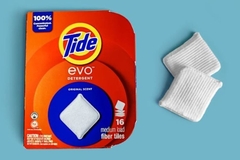Nivea argues India’s cosmetics regulations too pharma-like, stalling regional growth

Nivea is stressing the need for finer regulatory distinctions between cosmetics and pharmaceuticals in India to allow the domestic industry to grow and compete internationally. This comes as beauty giants increasingly view India as a key growth market.
Earlier this week at Massmerize 2025, an event organised by the Federation of Indian Chambers of Commerce & Industry, Geetika Mehta, managing director at Nivea India, said: “The personal care space is generally looked at like drugs and cosmetics together.”
“Of course, there is already some kind of demarcation, but I think more needs to happen there, because drugs, rightfully, need to be more regulated, and cosmetics need a little more space.”
She stressed that cosmeceutical products — cosmetics with bioactive ingredients — do not necessarily require the same level of regulation as pharmaceuticals.
“Production-linked incentives, in their current form, are centred around food and pharmaceuticals. Personal care is an area that can be looked at a little more, as that will allow more competitiveness and opportunities for us to export,” added Mehta.
Nivea says it can take up to nine months to import products due to strict regulations, creating an obstacle for companies before starting production in India.
“It often gives us [personal care companies] cold feet about whether to look at newer products or continue what we have. Experimentation is great for the Indian consumer, so why shouldn’t we allow space within limits to try new products?”
Mehta argues that overlooking the current regulations can, therefore, benefit personal care companies wanting to do business in India.
Doubling in on India
By 2035, India’s luxury beauty market is expected to quadruple, reports Reuters. It is estimated to reach US$4 billion, compared to US$800 million in 2023. L’Oréal and Shiseido are strengthening their hold in the country as sales are slowing down in developed economies.
 Mehta argues that overlooking the current regulations can benefit companies wanting to do business in India.The publication says rising disposable incomes, coupled with young social-media-influenced shoppers, are driving the Indian beauty market forward.
Mehta argues that overlooking the current regulations can benefit companies wanting to do business in India.The publication says rising disposable incomes, coupled with young social-media-influenced shoppers, are driving the Indian beauty market forward.
Earlier this year, L’Oréal announced plans to significantly expand its India business operations over the next few years, positioning the country as a central hub in its global growth strategy.
Meanwhile, last week, India’s prime minister urged Indian consumers to buy local products “made in India,” creating a potential boycott of American brands after US President Donald Trump raised tariffs on Indian goods by an additional 25%, amounting to 50%.
Sameer Jindal, managing director for investment bank Houlihan Lokey’s corporate finance business in India, says: “India is the last bastion of growth for premium beauty. Consumers are willing to experiment and try new things.”













